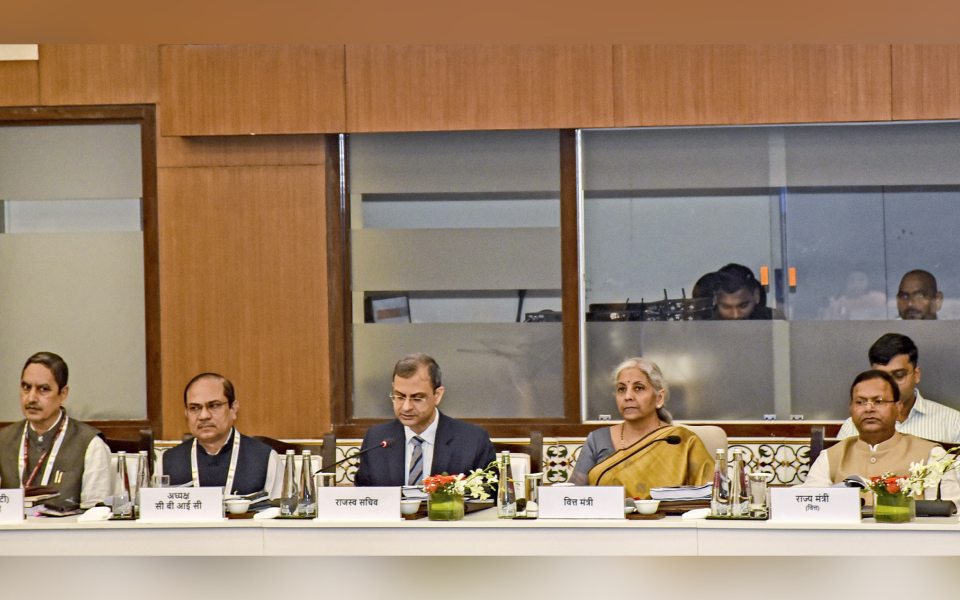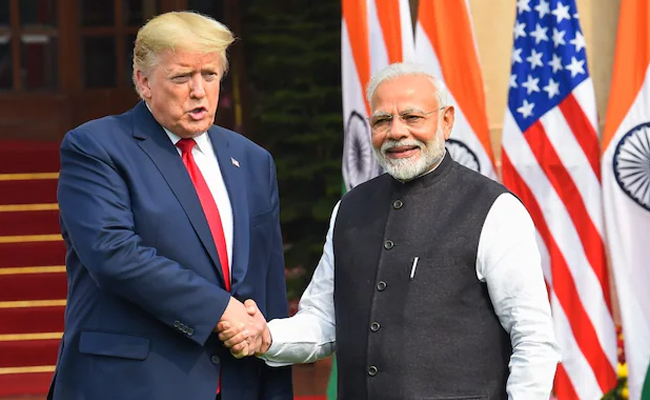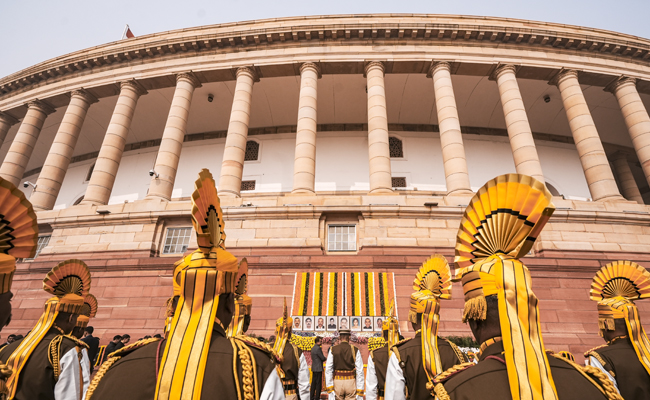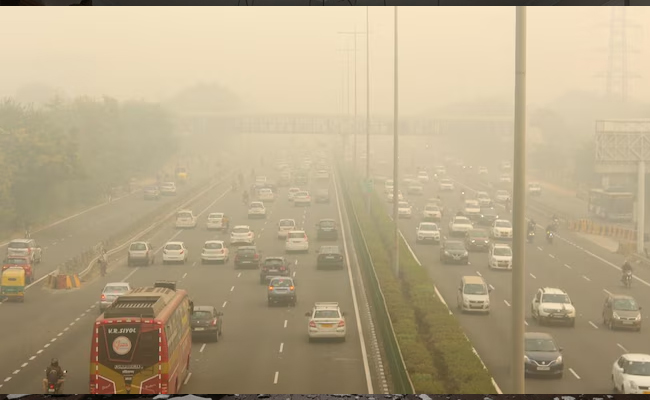New Delhi, Sep 9: GST Council headed by Union Finance Minister Nirmala Sitharaman on Monday decided to set up a Group of Ministers (GoM) on reducing tax rate on life and health insurance and cut GST on cancer drugs and namkeens.
Briefing reporters on the outcome of the 54th GST Council meeting, Sitharaman said it has decided to have a Group of Ministers (GoM) to look into the GST rate on life and health insurance.
The GoM will be headed by Bihar Deputy Chief Minister Samrat Choudhary, who is currently heading the panel on GST rate rationalisation.
Sitharaman said that new members would be joining the GoM to look into GST on health insurance.
The GoM will be submitting its report by October end, she said.
The issue of taxation of insurance premiums had figured in Parliament discussions with Opposition members demanding that health and life insurance premiums be exempt from the GST. Even Transport Minister Nitin Gadkari wrote to Sitharaman on the issue.
Sitharaman in her reply to a discussion on the Finance Bill had said that 75 per cent of the GST collected goes to states and the Opposition members should ask their state finance ministers to bring the proposal at the GST Council.
The GST Council in its meeting on Monday also decided to cut tax rates on cancer drugs to 5 per cent from 12 per cent and namkeens from 18 per cent to 12 per cent.
Sitharaman further said that a GoM will also be constituted to deal with the issue concerning compensation cess which will cease after March 2026.
The Council also deliberated on the GoM's status report on rate rationalisation and online gaming.
The minister further said that a committee of secretaries headed by Additional Secretary (Revenue) will be formed on the IGST which is currently facing a negative balance. It will look into ways to retrieve the money from states.
Let the Truth be known. If you read VB and like VB, please be a VB Supporter and Help us deliver the Truth to one and all.
New Delh (PTI) The Congress on Saturday said it is perhaps not very surprising that India is not part of a US-led strategic initiative to build a secure silicon supply chain, given the "sharp downturn" in the Trump-Modi ties, and asserted that it would have been to "our advantage if we had been part of this group".
Congress general secretary in charge of communications Jairam Ramesh took a swipe at Prime Minister Narendra Modi, saying the news of India not being part of the group comes after the PM had enthusiastically posted on social media about a telephone call with his "once-upon-a-time good friend and a recipient of many hugs in Ahmedabad, Houston, and Washington DC".
In a lengthy post on X, Ramesh said, "According to some news reports, the US has excluded India from a nine-nation initiative it has launched to reduce Chinese control on high-tech supply chains. The agreement is called Pax Silica, clearly as a counter to Pax Sinica. The nations included (for the moment at least) are the US, Japan, the Republic of Korea, Singapore, the Netherlands, the United Kingdom, Israel, the United Arab Emirates, and Australia."
"Given the sharp downturn in the Trump-Modi ties since May 10th, 2025, it is perhaps not very surprising that India has not been included. Undoubtedly, it would have been to our advantage if we had been part of this group."
"This news comes a day after the PM had enthusiastically posted on his telephone call with his once-upon-a-time good friend and a recipient of many hugs in Ahmedabad, Houston, and Washington DC," the Congress leader asserted.
The new US-led strategic initiative, rooted in deep cooperation with trusted allies, has been launched to build a secure and innovation-driven silicon supply chain.
According to the US State Department, the initiative called 'Pax Silica' aims to reduce coercive dependencies, protect the materials and capabilities foundational to artificial intelligence (AI), and ensure aligned nations can develop and deploy transformative technologies at scale.
The initiative includes Japan, South Korea, Singapore, the Netherlands, the United Kingdom, Israel, the United Arab Emirates, and Australia. With the exception of India, all other QUAD countries -- Japan, Australia and the US -- are part of the new initiative.
New Delhi will host the India-AI Impact Summit 2026 on February 19-20, focusing on the principles of 'People, Planet, and Progress'. The summit, announced by Prime Minister Narendra Modi at the France AI Action Summit, will be the first-ever global AI summit hosted in the Global South.
Prime Minister Modi and US President Trump on Thursday discussed ways to sustain momentum in the bilateral economic partnership in a phone conversation amid signs of the two sides inching closer to firming up a much-awaited trade deal.
The phone call between the two leaders came on a day Indian and American negotiators concluded two-day talks on the proposed bilateral trade agreement that is expected to provide relief to India from the Trump administration's whopping 50 per cent tariffs on Indian goods.
In a social media post, Modi had described the conversation as "warm and engaging".
"We reviewed the progress in our bilateral relations and discussed regional and international developments. India and the US will continue to work together for global peace, stability and prosperity," Modi had said without making any reference to trade ties.





